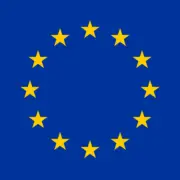European Move to Increase Liability of Online Platforms
Proposed new European regulations seek to place an unprecedented onus on online platforms to detect copyright infringements.
The move comes as part of wider consultations on the EU’s Digital Single Market strategy.
What is being proposed?
Article 13 of the proposed directive on copyright in the Digital Single Market addresses the use of protected content by online services. Should the regulations go ahead, online service providers, which host and make large amounts of user-uploaded work available, will have greater responsibility for monitoring and filtering this content. This would affect ISPs, social media sites, and other hosting and sharing platforms.
The proposed legislation will likely be popular with content owners as it seeks to protect their intellectual property rights. Rights holders have coined the phrase ‘value-gap’ to describe the perceived gap between the royalties generated for creators and owners of copyright works, and the revenue generated by websites making use of those works. For the first time, online service providers could be liable for user-uploaded content. Platforms such as Facebook, YouTube, Flickr, eBay, and Dropbox will be implicated if the proposed legislation goes ahead in its current form.
Since it has been made public, there has been much debate about whether online platforms should police the content they host, and how they would be able to actively monitor and filter user-uploaded information that is not being shared legally. One such issue is how to identify content that is not covered by agreements with rights holders. Another issue revolves around the use of automated filtering technology. It is doubtful such technology would be sophisticated enough to make accurate judgements. For instance, under the current European Copyright Directive, use of copyrighted material, including film clips, songs, and TV shows, can be used lawfully in parody works, so long as the parody doesn’t convey a discriminatory message. It currently seems unlikely an algorithm would be able to make such distinctions.
Current legislation
Online service providers are currently shielded from liability by Articles 12-14 of the E-commerce Directive. Specifically, Article 14 states that information society service providers are not liable for storing content from a user of their service, as long as the provider is not aware of any illegal activity or information directly associated with it. If the provider becomes aware of any such knowledge, they are still protected from liability as long as they quickly and efficiently remove the information.
It is unclear whether the proposed regulations will supersede this Directive, but the draft regulations suggest the EU is moving away from protecting internet intermediaries. A more complete picture will become clearer in May 2018, when the European Commission says the work of ensuring “swift and proactive detection and removal of illegal content online” will be complete, and the Copyright Directive in final form.
The draft legislation reflects the need for copyright laws to be relevant for today’s digital environment, where information is instantly shared around the globe, and often without rights holders receiving remuneration. The challenge will be how online service providers react to the increased responsibility and how such requirements can be met without imposing untenable technical burdens.




